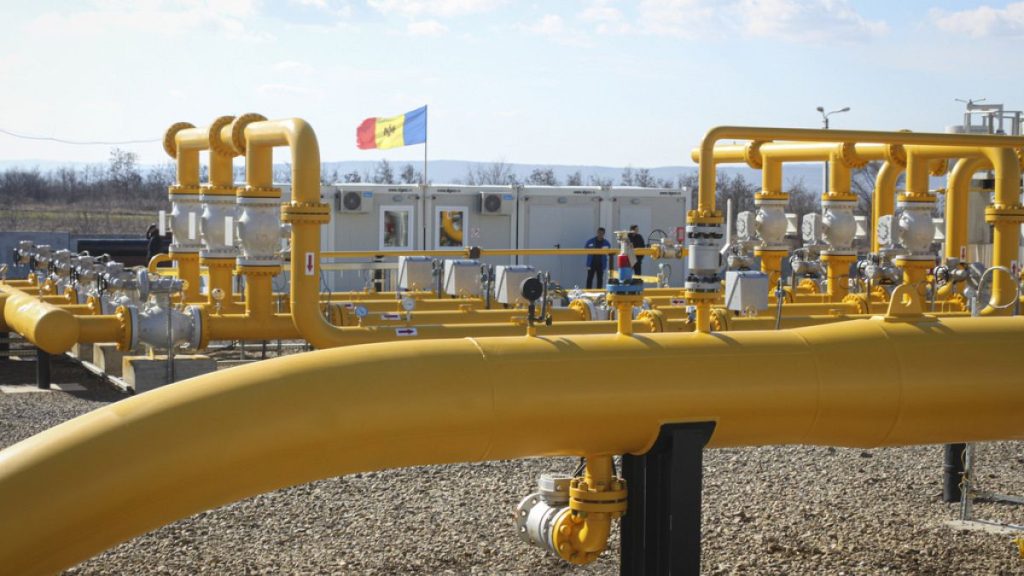The escalating tension between Moldova and Russia over natural gas supplies reached a boiling point as Gazprom, the Russian energy giant, announced its intention to halt gas deliveries to Moldova starting January 1st, 2024. This drastic measure, while anticipated by Moldovan authorities, throws the nation’s energy security into jeopardy, particularly as winter sets in. Gazprom cited Moldova’s repeated failure to meet its contractual payment obligations as the justification for this action, accusing Moldovagaz, the Moldovan gas company, of significant breaches of contract. This move unfolds against a backdrop of heightened anxieties and accusations of Russian attempts to destabilize Moldova through the manipulation of energy resources.
Moldova, a small, landlocked nation sandwiched between Ukraine and Romania, has been navigating a precarious energy landscape, particularly since Russia’s full-scale invasion of Ukraine in 2022 disrupted regional energy flows. Prior to the invasion, Moldova was entirely reliant on Russia for its natural gas needs. However, recognizing its vulnerability, the country has actively sought to diversify its energy sources and reduce its dependence on Moscow. This effort has included exploring alternative suppliers and strengthening energy ties with neighboring Romania, which has pledged its support to Moldova in this challenging period.
The current crisis revolves around the Kuciurgan power plant, a critical electricity generation facility located in the breakaway region of Transnistria. This Russian-backed separatist territory generates a significant portion of Moldova’s electricity. The plant is fueled by natural gas supplied by Gazprom. The ownership of the Kuciurgan plant is itself a point of contention between Moldova and Transnistria. Privatized by Transnistrian authorities in 2004 and subsequently sold to a Russian state-owned company, the privatization is not recognized by the Moldovan government, further complicating the already strained relations.
Adding to the complexity of the situation, Transnistria also declared its own state of emergency in mid-December, mirroring Moldova’s earlier declaration due to concerns over potential gas supply disruptions. This move underscores the interconnectedness of the energy systems in Moldova and Transnistria and the vulnerability of both to disruptions in the flow of Russian gas. The precarious energy balance in the region was further highlighted in late 2022 when Russian strikes on Ukrainian energy infrastructure resulted in significant power outages in Moldova, including those connected to the Kuciurgan plant.
The backdrop of this energy crisis is the broader geopolitical struggle between Russia and the West for influence in Moldova. Moldova, a former Soviet republic, has increasingly oriented itself towards the European Union, culminating in the re-election of pro-Western President Maia Sandu for a second term in October 2022 and a referendum affirming the country’s path towards EU membership. These developments have been met with accusations of Russian interference aimed at derailing Moldova’s westward trajectory, allegations that Russia denies.
Moldova’s government has explicitly accused Russia of weaponizing energy flows to destabilize the country. Prime Minister Dorin Recean voiced these concerns, warning that Russia might deliberately cut off gas supplies, leaving Moldovans without heat and electricity during the harsh winter months. This accusation reflects a broader pattern of concerns in Europe about Russia using energy as a political lever. The timing of Gazprom’s announcement, coinciding with the onset of winter and amid heightened tensions between Moldova and Russia, further fuels suspicions about the Kremlin’s motives.
The Moldovan parliament’s decision to impose a state of emergency in the energy sector in December reflects the gravity of the situation and the government’s anticipation of potential disruptions to gas supplies. This preemptive measure underscores the country’s vulnerability to energy coercion and its determination to mitigate the impact of any potential gas cutoff. The state of emergency grants the government expanded powers to manage the energy crisis and ensure the essential needs of its citizens are met.
Romania, a neighboring EU member state, has emerged as a crucial partner for Moldova in its efforts to diversify its energy sources and reduce its reliance on Russia. Romania has pledged to provide support to Moldova in its time of need, offering access to its own energy resources and infrastructure. This commitment provides a vital lifeline for Moldova, demonstrating the importance of regional cooperation and solidarity in the face of energy insecurity.
The impending gas cutoff by Gazprom puts Moldova in a precarious position. As winter sets in, the country faces the daunting prospect of energy shortages, potentially impacting heating, electricity supply, and essential services. The situation is further complicated by the unresolved issue of the Kuciurgan power plant and the political tensions between Moldova and the breakaway region of Transnistria. Moldova’s efforts to diversify its energy sources and secure alternative supplies are now more critical than ever. The support from Romania and the international community will be crucial in helping Moldova navigate this challenging period and safeguard its energy security.














